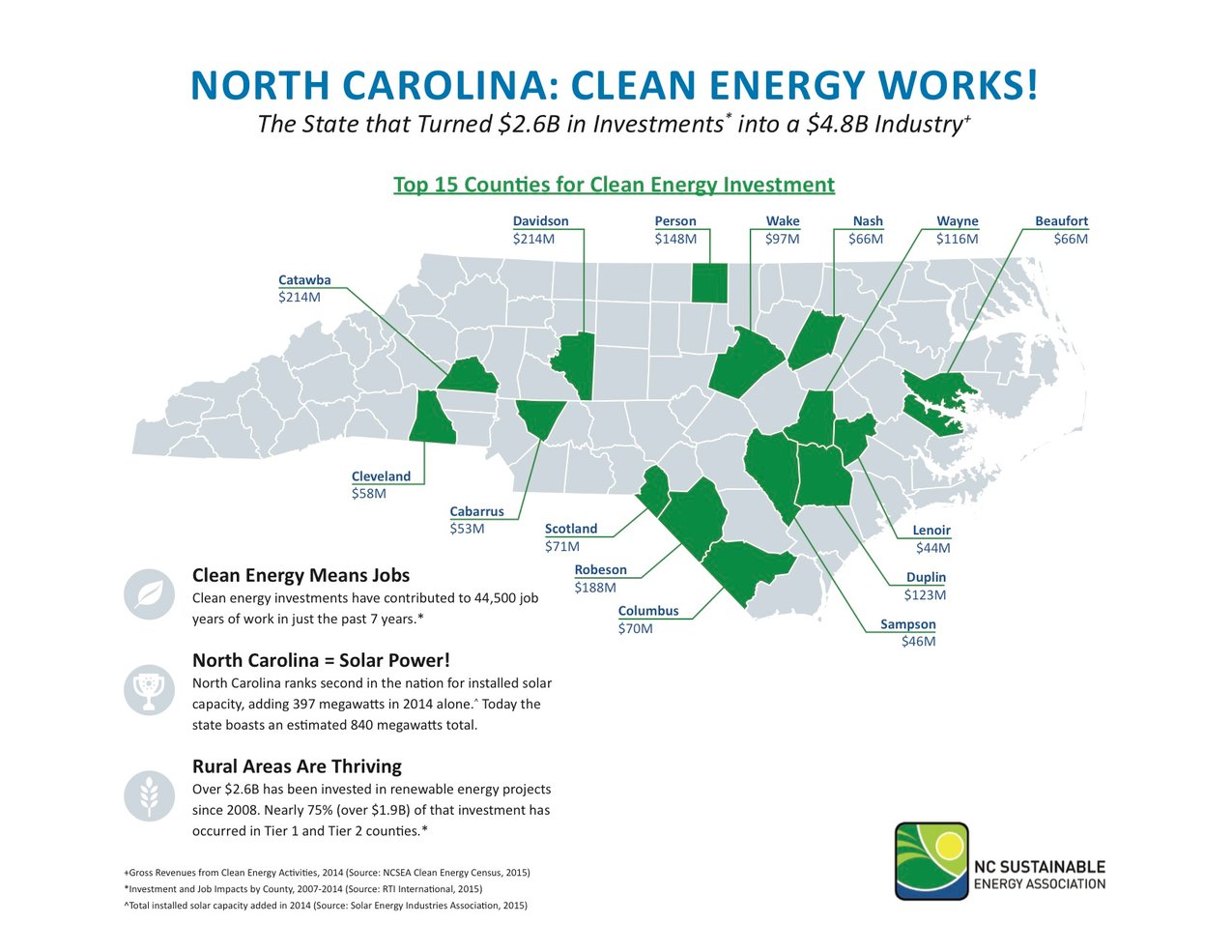
North Carolina has built a strong foundation of clean energy policies that date back almost 10 years, but they’ve been under attack during this year’s legislative session. Things came to a head with a controversial vote regarding the state’s Renewable Energy and Energy Efficiency Portfolio Standard (REPS) that was taken right before the Memorial Day weekend. Sen. Bob Rucho (R-Mecklenburg), one of the three co-chairmen of the Senate Finance Committee, declared a bill freezing the REPS at the current level (HB332) passed on a voice vote, despite a loud chorus of “no’s,” after refusing to allow an individual tally of committee members’ votes.
In fact, Sen. Jerry Tillman (R-Randolph), another co-chairman who voted against the bill, can be heard on the committee audio following the vote saying, “it wasn’t even close.” (A similar voice-vote controversy occurred in the failed attempt to repeal the REPS law two years ago.) Although the uproar over the committee vote on HB332 resulted in the legislation being put on the “back burner” for several weeks, this bill and others with similar anti-clean energy language (HB760, HB681) are still simmering away, and could come back up before the legislature adjourns, which is expected around Labor Day.
This pending legislation has prompted a wide range of clean energy supporters, including AEE and its member companies, to voice their concerns about the detrimental effect the proposed changes would have on North Carolina’s clean energy policies and economy. Strong support for the REPS and other policies is evidenced by the letters signed by dozens of companies representing tens of thousands of employees in North Carolina posted to this micro-site, “Business Leaders Support Clean Energy in N.C.”
Perhaps the most widely publicized example was this letter signed by tech giants Apple, Facebook, and Google, which have all recently built data centers in western NC, who wrote:
“As global companies providing services to consumers around the world from our operations in the state, a reliable, sustainable electricity supply is critical, and requires sourcing power from renewable energy. In fact, the right and ability to access power from renewable resources is not merely a goal, but an expectation.”
North Carolina’s long-standing, influential agricultural industry has also been very active in these debates. This article quotes the N.C. Pork Council as stating, “We don’t want to see anything about the [REPS] law get changed.” In this letter, Smithfield Foods, which employs more than 10,000 people in North Carolina, expresses its ongoing support of the REPS and for extension of the renewable energy investment tax credit. Smithfield, the nation’s largest pork producer and processor, is in the midst of projects on six of its farms to turn swine waste, a REPS-eligible renewable energy source, into biogas to generate electricity.
AEE’s state partner, the NC Sustainable Energy Association (NCSEA), is spearheading a diverse coalition to maintain the REPS law, and as the infographic below clearly shows, North Carolina’s clean energy policies are driving investment and creating jobs and much-needed new tax revenues in every region of the state, especially rural communities.

North Carolina’s clean energy policies are also helping to save electricity customers money on their monthly bills – already over $160 million since 2008, which will increase to $650 million in savings by 2029. To learn more about North Carolina’s clean energy policies, see this one-pager from NCSEA, as well as this study from RTI International and Scott Madden (summary findings here).
NCSEA, AEE, and other clean energy advocates and supporters continue to work hard to spread the message to legislators and others that North Carolinians value and are benefiting from clean energy. This debate is not over yet in the Tar Heel state – stay tuned!